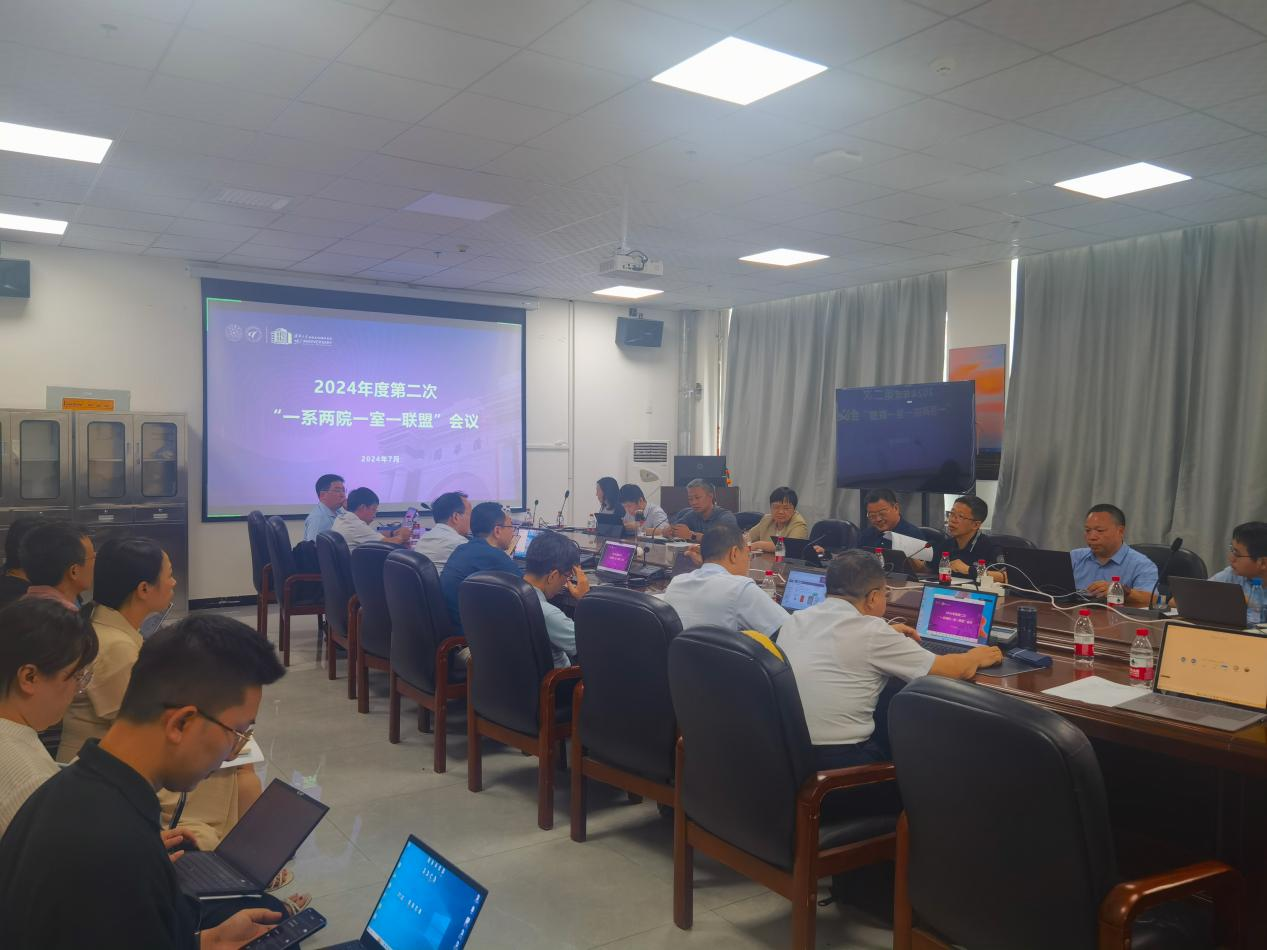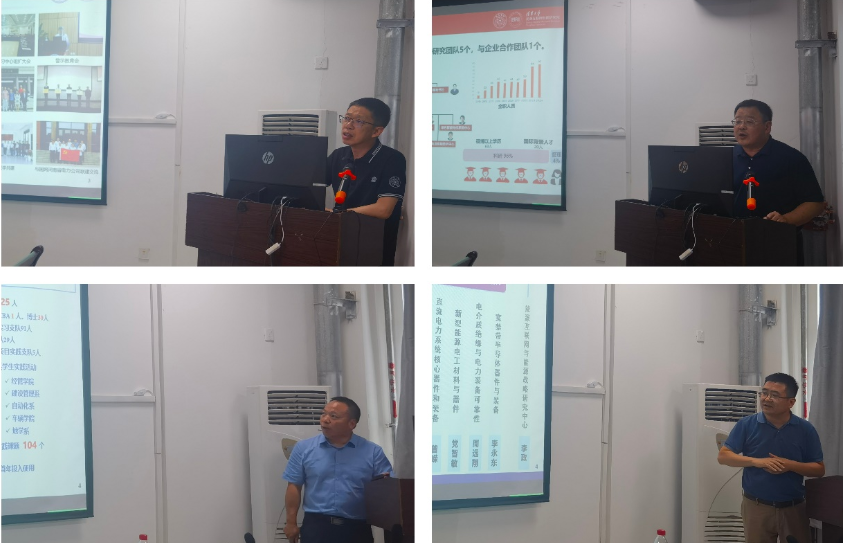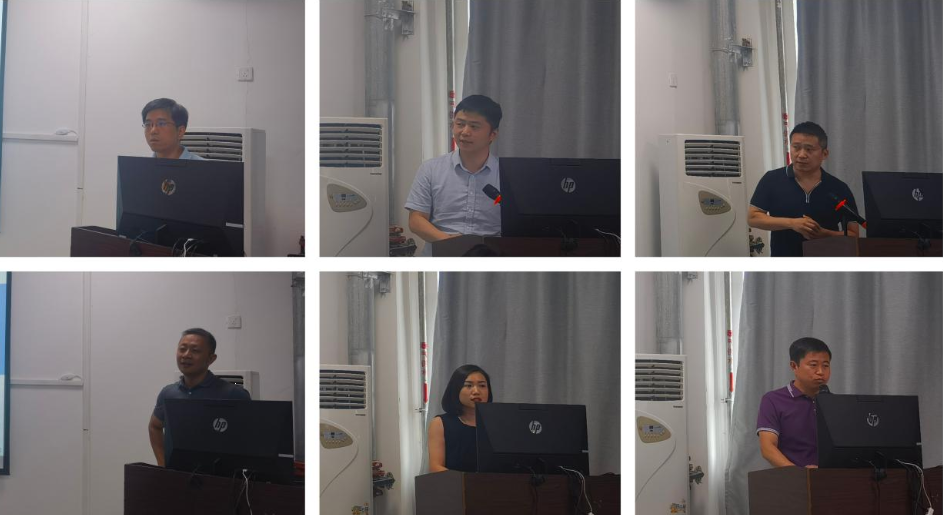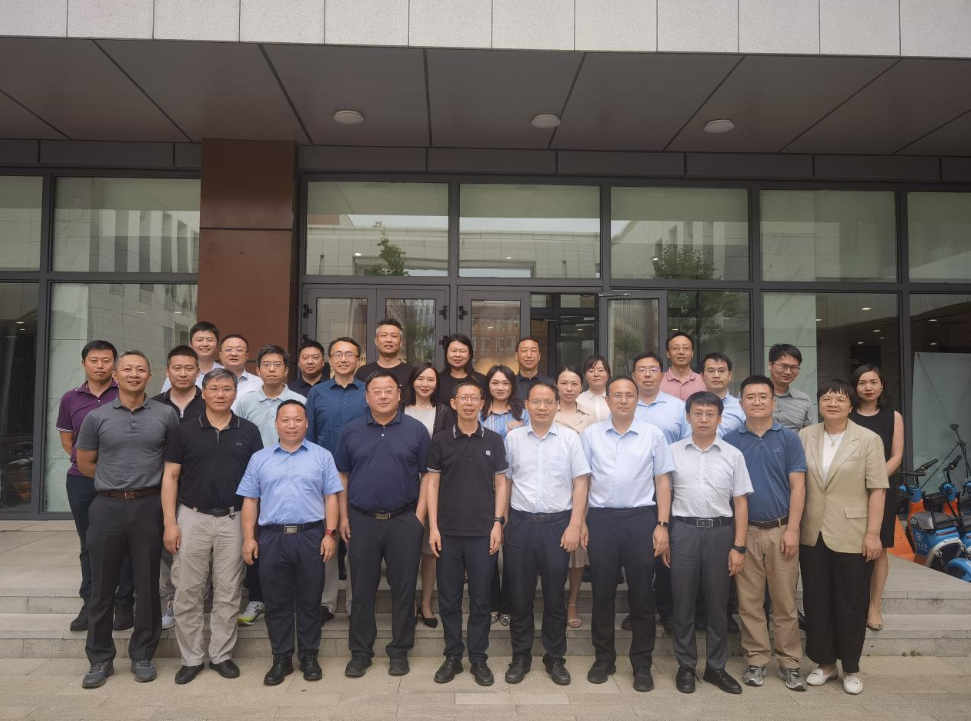On July 11, 2024, Tsinghua University's Department of Electrical Engineering, Energy Internet Research Institute, Tsinghua University ("Beijing Institute"), Sichuan Energy Internet Research Institute Tsinghua University ("Sichuan Institute"), National Key Laboratory of New Power System Operation and Control ("National Key Lab"), and National Energy Internet Industry and Technology Innovation Alliance ("Alliance") jointly convened the second annual meeting of the "One-Department-Two-Institutes-One-Lab-One-Alliance" framework. Nearly 30 participants attended, including: Yu Xinjie (Party Committee Secretary of the Department) and other departmental leadership members; Gao Wensheng (Executive Deputy Director) and Gao Feng (Deputy Director) from the Beijing Institute; Lu Zongxiang (Executive Deputy Director), Liu Wanhua (Deputy Director), and Liu Yi (Deputy Director) from the Sichuan Institute; along with Zhang Bo (Deputy Director) and Cheng Lin (Deputy Director) from the National Key Lab. The meeting was chaired by Yu Xinjie, Party Committee Secretary of the Department.

Yu Xinjie, Gao Wensheng, and Lu Zongxiang presented mid-2024 work progress and future for the Department, Beijing Institute, and Sichuan Institute respectively, covering Party building, talent cultivation, team development, scientific research breakthroughs, think tank construction, and open collaboration. Separately, Zhang Bo reported on the National Key Laboratory's development regarding team building, spatial resource planning, project funding and collaborations, and graduate training support systems.

During the thematic discussion session, six experts delivered initiating presentations: Lu Chao (Associate Director, Tsinghua EE Department) on organized research and platform development; Lü Lanchun (Assistant Director of Sichuan Institute & Head of Tech Innovation Department) on the Southwest Professional Doctoral Program and National Key Lab's doctoral admissions/training; Zhang Pinjia (Associate Director, Tsinghua EE Department) regarding enhancing collaboration for research commercialization; Liu Yi (Deputy Director, Sichuan Institute) concerning joint think tank development and Energy Internet Think Tank Center establishment; Dai Jing (Deputy Director, Beijing Institute's Energy Governance Center) about National Energy Internet Alliance progress. These spearheaded discussions comprehensively analyzed current conditions and challenges. Throughout the exchanges, participants engaged in candid dialogues regarding operational difficulties, contributing constructive suggestions for advancing future initiatives.

Concluding the meeting, Yu Xinjie emphasized that the session had achieved significant consensus and met its objectives. Noting that electrical engineering is currently experiencing a period of rapid, high-quality development, he urged all participants to uphold rigorous standards and pragmatic approaches. Yu called for aligning efforts with major national strategic imperatives—particularly carbon peak and carbon neutrality and new power systems—while deepening the collaborative mechanism of the "One-Department-Two-Institutes-One-Lab-One-Alliance" framework. He stressed actively advancing reform initiatives to propel all undertakings to new heights.
